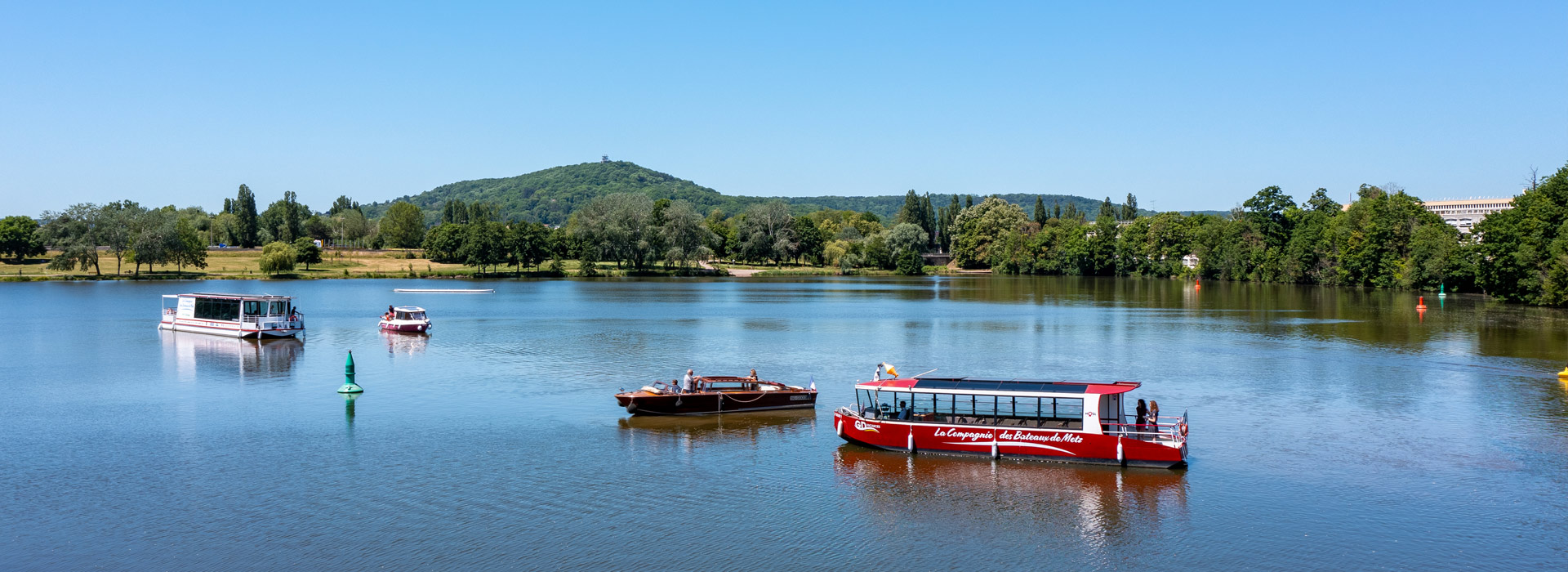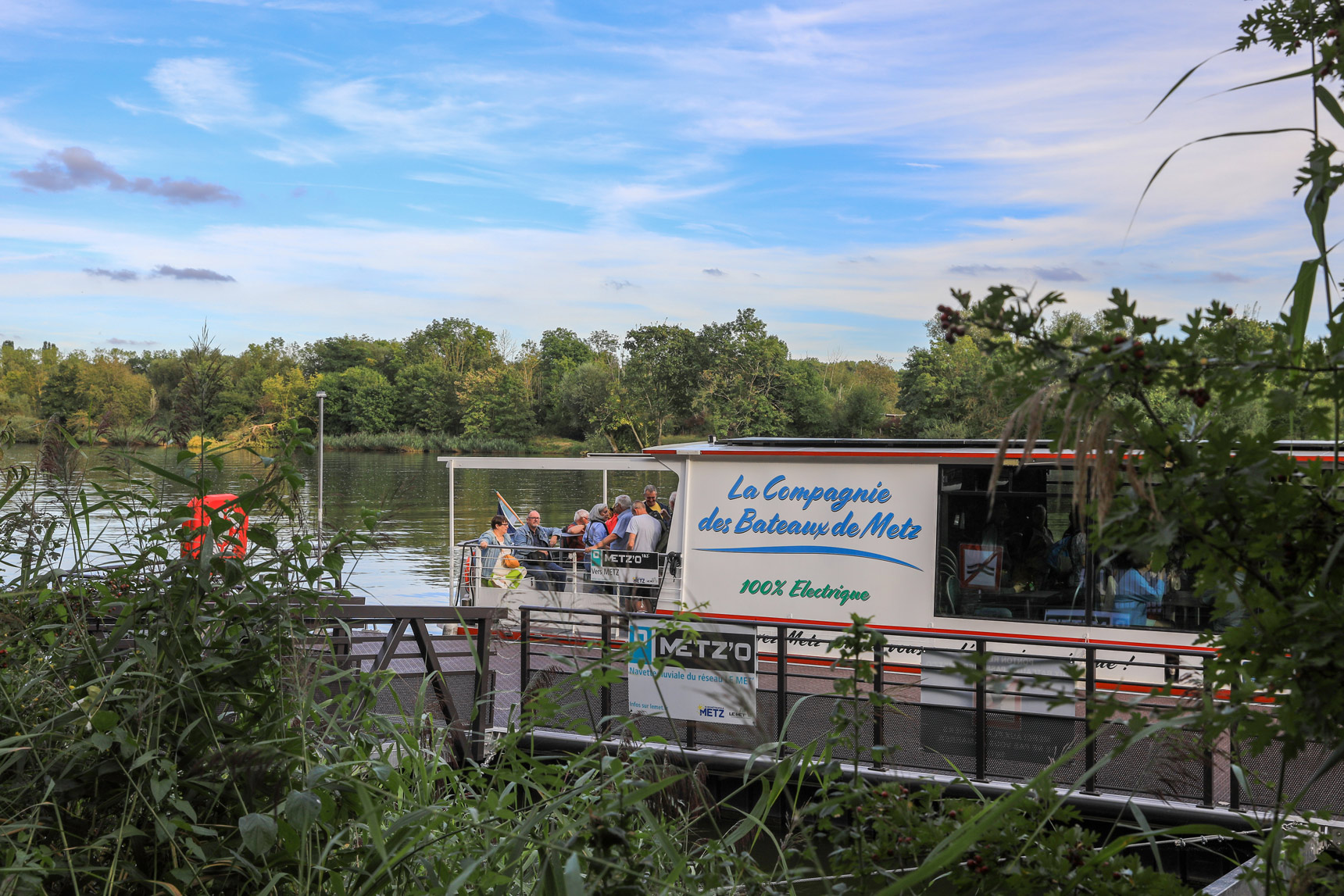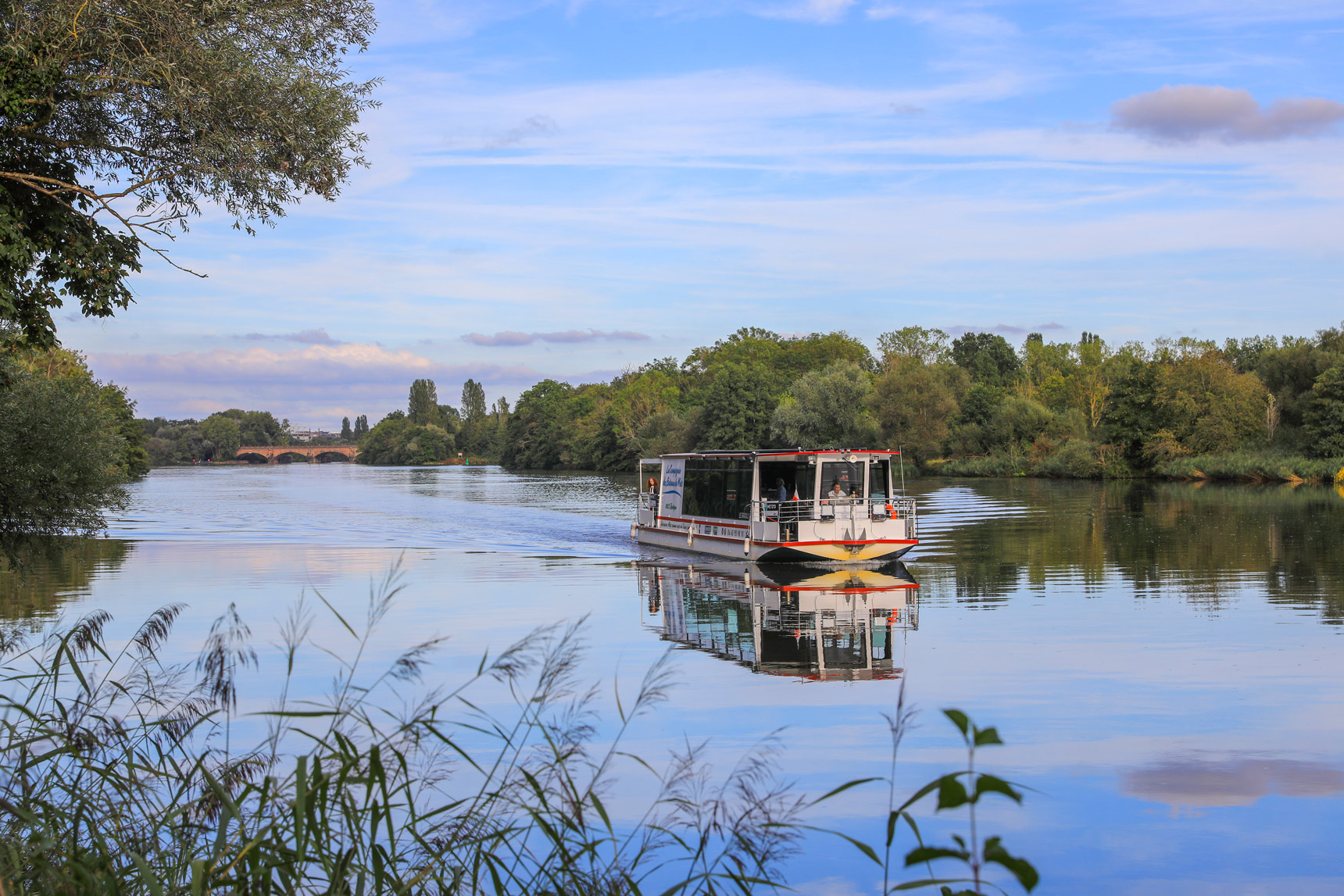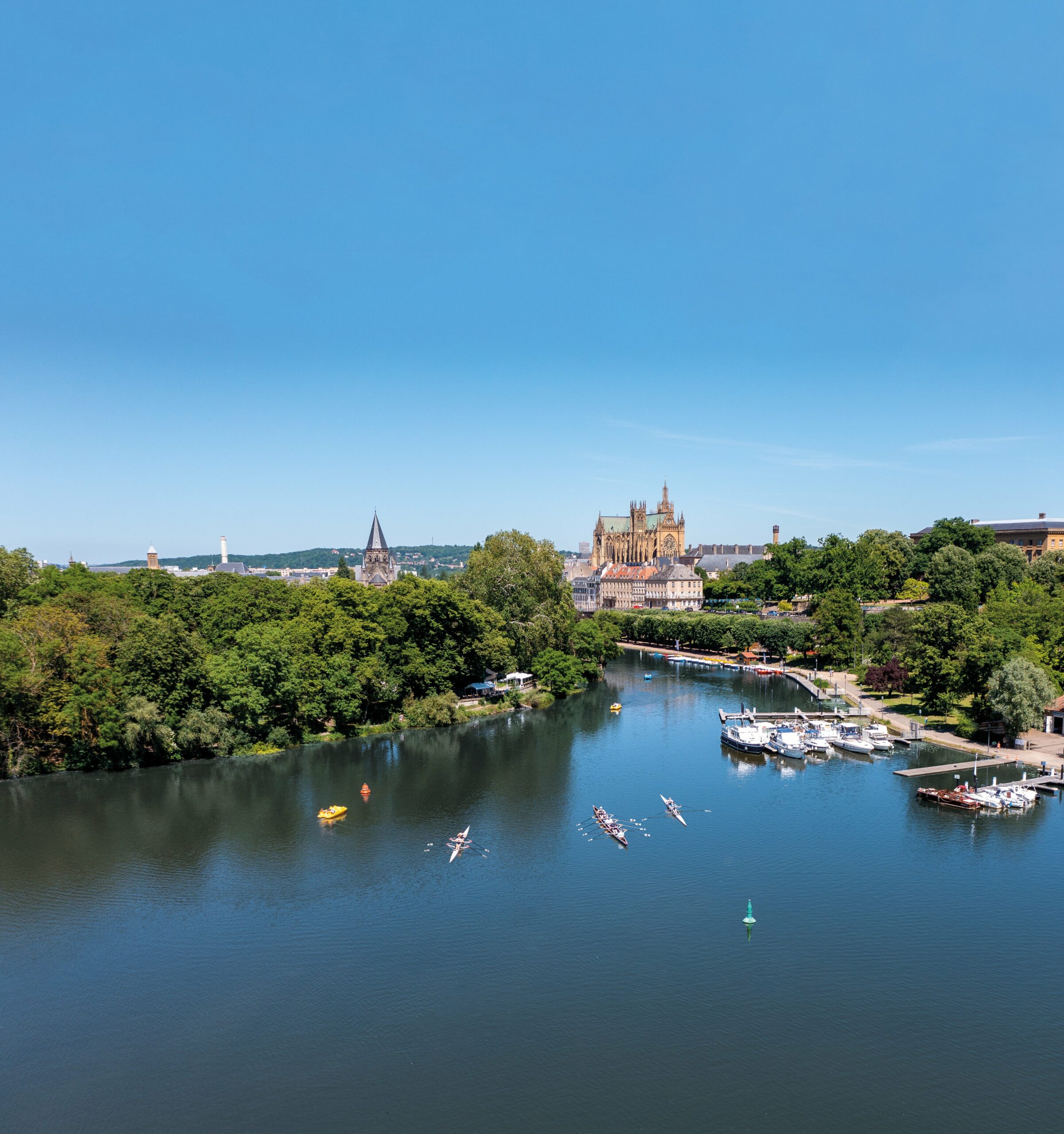Metz was built on islands formed between the various arms of the Moselle and Seille rivers, the 2 watercourses that flow through it. The city boasts more than 500 hectares of water, including a Plan d'Eau created in 1974 on 7.2 hectares of meadows and promenades. The Plan d'Eau offers beautiful views of the Cathedral and other emblematic sites of the city.
It hosts numerous festivities throughout the year: hot-air balloon departures, fireworks on July 14 and the Mirabelle plum festival, sporting events and, since 2020, the water festival.
Historically, Metz has always been a city on the water, "a veritable archipelago". The Moselle has always played a key role in Metz. The river has shaped its architecture, history and economy.
The Port of Metz is France's sixth largest river port and the country's leading grain port.
Having long neglected its waterways, the municipality has decided to offer its residents a new means of getting around: 100% electric, environmentally-friendly river shuttles. Metz is one of the few cities in France, along with the coastal cities of Bordeaux and Nantes, to have river shuttles, known as Metz'O, as part of its public transport network.
For business events, boats can be privatized for a discovery of the city, but also for lunch, dinner, snacks, etc.
These boats can seat from 9 to 75 people, and some are electrically propelled.







